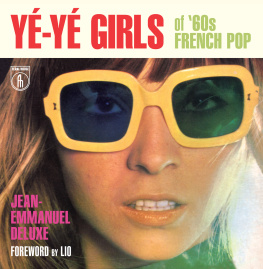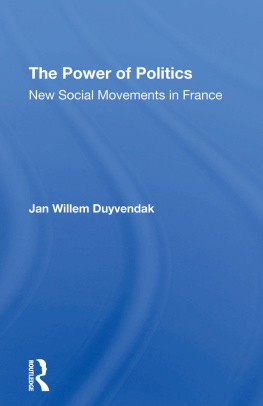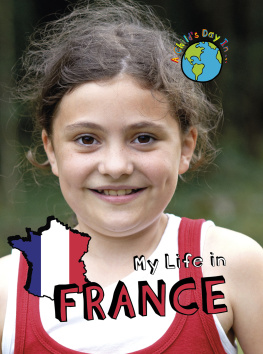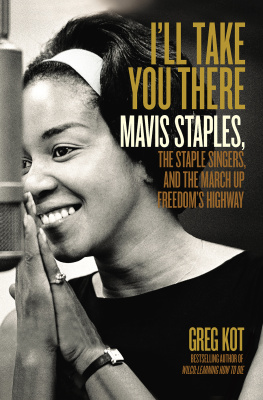All rights reserved.
1240 W. Sims Way
FOREWORD
THESE GIRLS ARE THE MOST LEGITIMATE OF THE POP children. Before stealing the worlds stages they were the muses, the inspirations without whom none of the unstoppable songs that our male idols offered us would have had the same gourmet flavor. If the Beatles had offered us Sgt. Pepper without the She loves you, yeah from the beginning, we wouldnt have had as much fun. The joyous hysteria, the tsunami of girls at every appearance, this wind of freedom would have been unthinkable without the sexy songs of the French girls. Lightness, grace in most the trivial things, and a dramatic oomph are the girls privilege and pops quintessence. These girls ARE pop. They invite the boys into their candy world, offer themselves before extracting themselves, playfully, from their suspenders to their bra straps, which they use as their swing.
Lio

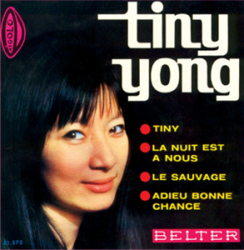
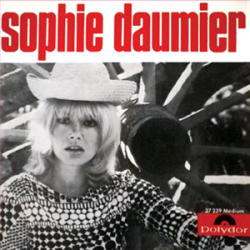
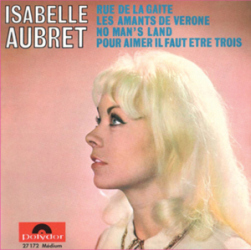


France Gall
INTRODUCTION
In spite of its light-as-a-bubble appearance, pop music can tell us more than many a sociological essay.
Take, for instance, one of the songs Serge Gainsbourg penned for France Gall, Baby Pop (1966):
Sur lamour tu te fais des ides
(You get ideas about love)
Un jour ou lautre cest oblig
(One of these days youll end up)
Tu seras une pauvre gosse
(As one poor kid)
Seule et abandonne
(Alone and forsaken)
Tu finiras par te marier
(Youll have to get married)
Peut-tre mme contre ton gr
(Maybe even against your will)
la nuit de tes noces
(On your wedding night)
Il sera trop tard pour
(Itll be too late)
Le regretter
(For you to regret)
Chante, danse Baby pop
(Sing and dance, Baby pop)
Comme si demain Baby pop
(As if tomorrow, Baby pop)
Ne devais jamais Baby pop
(Would never, Baby pop)
Jamais revenir
(Never have to come back)
Chante, danse Baby pop
(Sing and dance, Baby pop)
Comme si demain Baby pop
(As if tomorrow, Baby pop)
Au petit matin Baby pop
(In the early morning)
Tu devais mourir
(You just had to die)
The disastrous fate of thousands of carefree teenyboppers was never better exposed than it is here, on the A-side of a successful single. The lyrics provide a cruel inside view of the ephemerality of youth: many youngsters of that time would very soon embrace the sadness of adult life and leave the lights of the Bus Palladium (the club in the mid-sixties) behind for good. Were talking pre-May 68 here, and despite the steps (albeit small) women had achieved toward equality, most female teenagers knew what they were expected to do: conform, as their own mothers did, to the views of a (still) very patriarchal society indeed.
The evolution of the status of youth, its subcultures, and its rites of passage are all reflected in the music industry. The condition of women has evolved, decade after decade, as clothes and music have evolved. More to the point: the latter can be seen as structures that allow us to analyze the evolution of morals and the place of women in society. Lets take two examples: first, in 1965, when France Gall sang the infamous Sucettes ( LAnis), a hymn to oral sex in the guise of innocent praise for lollipops:
Annie aime les sucettes
(Annie loves lollipops)
Les sucettes lanis
(Anise-flavored lollipops)
Les sucettes lanis
(Annies anise lollipops)
DAnnie
Donnent ses baisers
(Give her kisses)
Un got ani-
(A real taste of Ani-)
s lorsque le sucre dorge
(-se as the barley sugar)
Parfum lanis
(Anise-flavored)
Coule dans la gorge dAnnie
(Pours into Annies throat)
Elle est au paradis
(Shes in heaven)
Fifteen years later, Lio sang more or less the same thing on Banana Split, with music by Jay Alanski and lyrics by Jacques Duvall:
Baisers givrs sur les
(Frozen kisses on)
Montagnes blanches
(Snowy mountains)
Na na na
On dirait que les choses
(Seems things)

